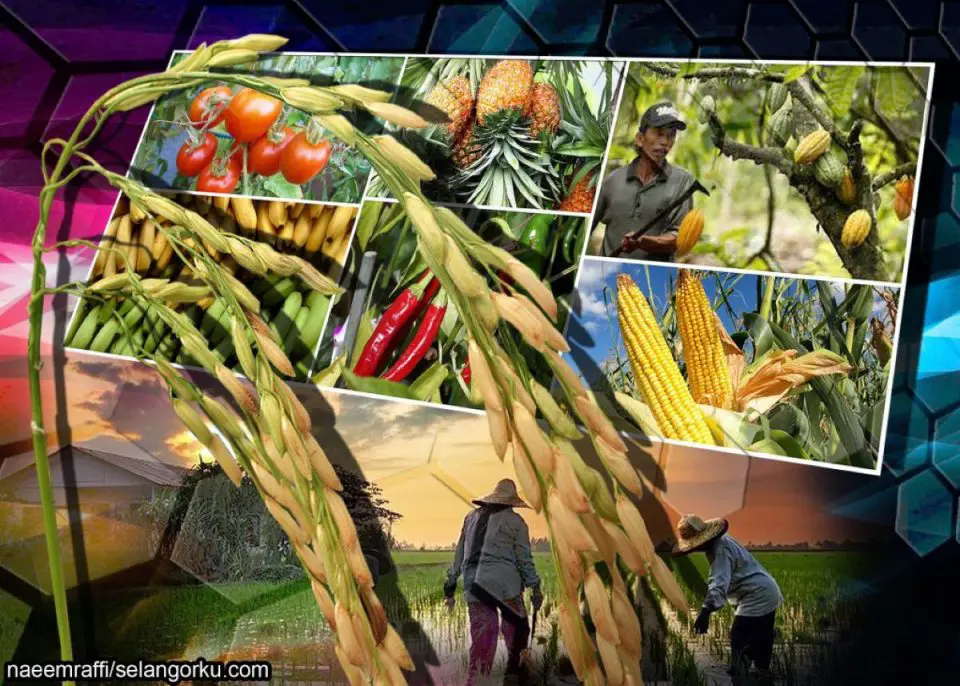PUTRAJAYA, May 25 — Vegetables and fruits such as chilli, ginger, cabbage, mango and coconut did not reach 100 per cent self-sufficiency ratio (SSR) for the year 2021, said Agriculture and Food Security Minister Datuk Seri Mohamad Sabu.
Among the vegetables and fruits that have not reached 100 per cent SSR for that year were chilli (29.3 per cent), ginger (14.6 per cent), cabbage (40.3 per cent), mango (16.2 per cent) and coconut (69.6 per cent).
Therefore, he said the direction of the sub-sector crops has been formulated will give priority to increasing the production of items that have not reached 100 per cent SSR to guarantee the country’s food security.
“Food production needs has to be improved because the SSR for 2021 shows that there are still some vegetables and fruits that have not yet reached 100 per cent,” Mohamad said.
He was speaking at the opening of the Malaysian Agro-Food Crop Subsector Investment Seminar earlier today, where his speech was read by Deputy Minister of Agriculture and Food Security Chan Foong Hin.
Mohamad said the Balance of Trade in the agriculture sector for foodstuffs in 2021 recorded a deficit of RM25 billion with export at RM39 billion while imports amounted to RM64 billion.
Statistics show that Malaysia is still dependent on the import of food items such as vegetables, fruits of moderate and cold climates, as well as animal feed to meet domestic needs.
“The high dependence on imported food needs to be minimised in an effort to enhance food security and stabilise supply prices,” he said.
In the meantime, Mohamad said in the 2023 Budget, the government has agreed to extend the tax incentives for food production projects until the end of 2025, with the scope of the incentives also expanded to include modern agriculture projects based on controlled environment agriculture.
Under the initiative, companies that invest in subsidiaries to carry out new food production projects are given a tax deduction equal to the amount of investment made for a maximum of three assessment years.
Companies that carry out food production projects are given a 100 per cent income tax exemption on statutory income for 10 years for new projects and five years for expansion projects of existing companies.
“Their involvement can help to improve food security and stabilise supply prices by reducing our dependence on imported food,” he said and added that during the period from 2001 to last month, a total of 249 companies were approved for tax incentives in food production projects with an investment value of RM2.2 billion,” he said.
Meanwhile, Chan in a press conference said the Ministry of Agriculture and Food Security (MAFS) is monitoring the effects faced by farmers across the country following the El Nino phenomenon.
He said the close monitoring covers rice production areas under the Muda Agricultural Development Authority (Mada), the Kemubu Agricultural Development Authority (Kada) and the Integrated Agricultural Development Area (Iada).
“We have to make sure that the water drainage is sufficient for the production of padi in the country,” he said.
The Meteorological Department (MetMalaysia) recently predicted that the Southwest Monsoon which is expected to start on May 15 and continue until this September will cause lower rainfall in most places.
Several international meteorological agencies predict the formation of El Nino will begin in mid-2023 to early 2024 and many countries are taking precautions to prevent the adverse effects of the phenomenon.
— Bernama





